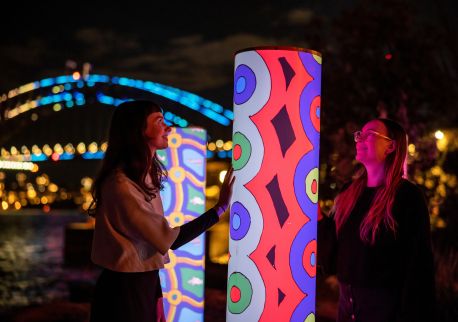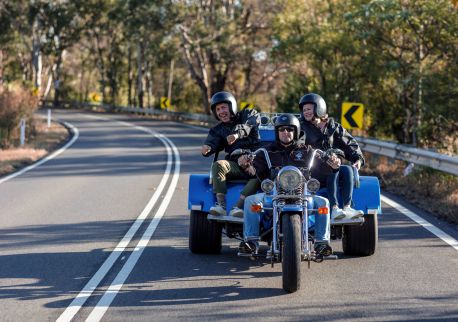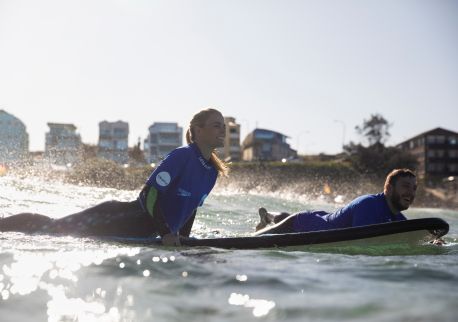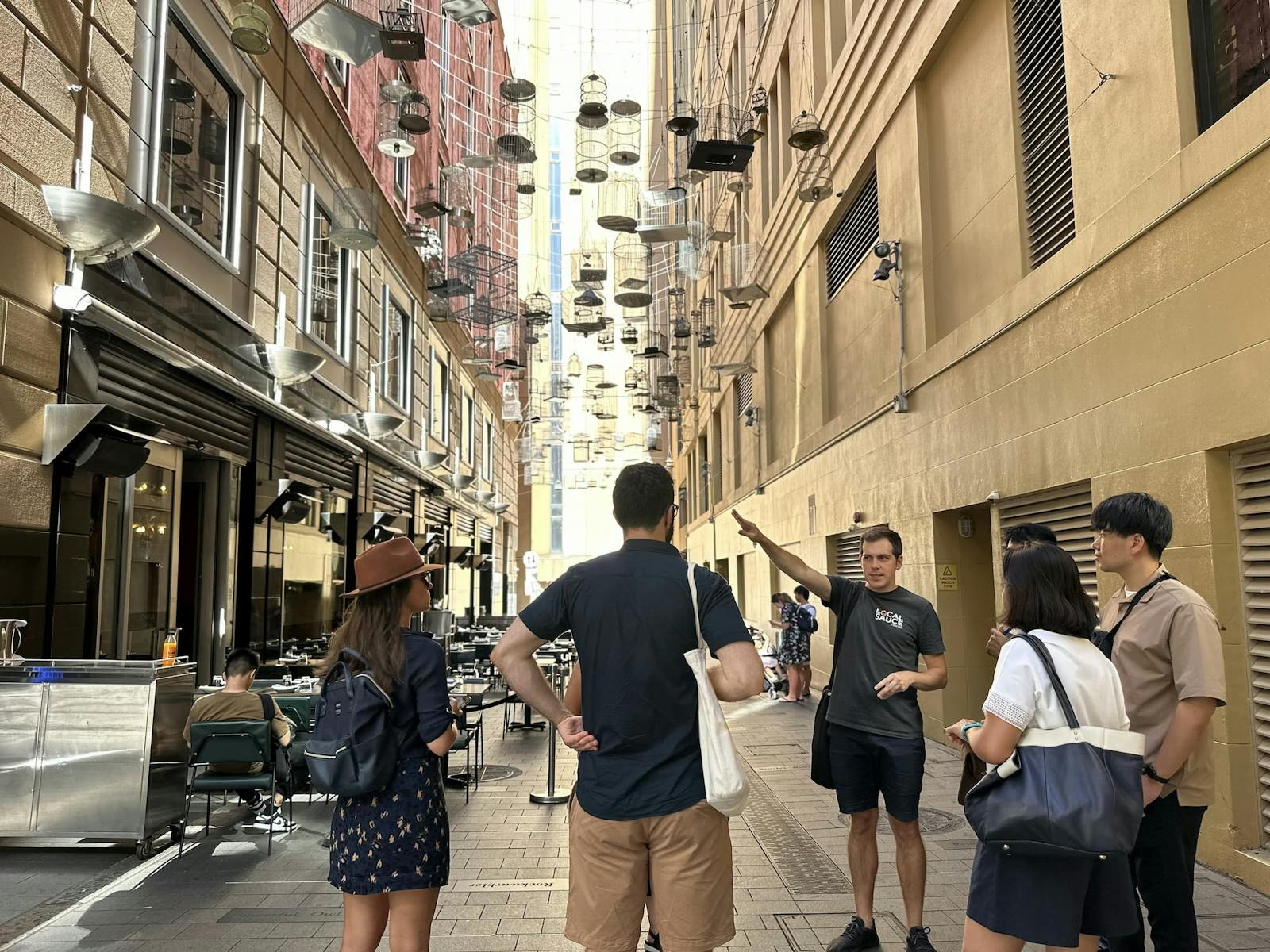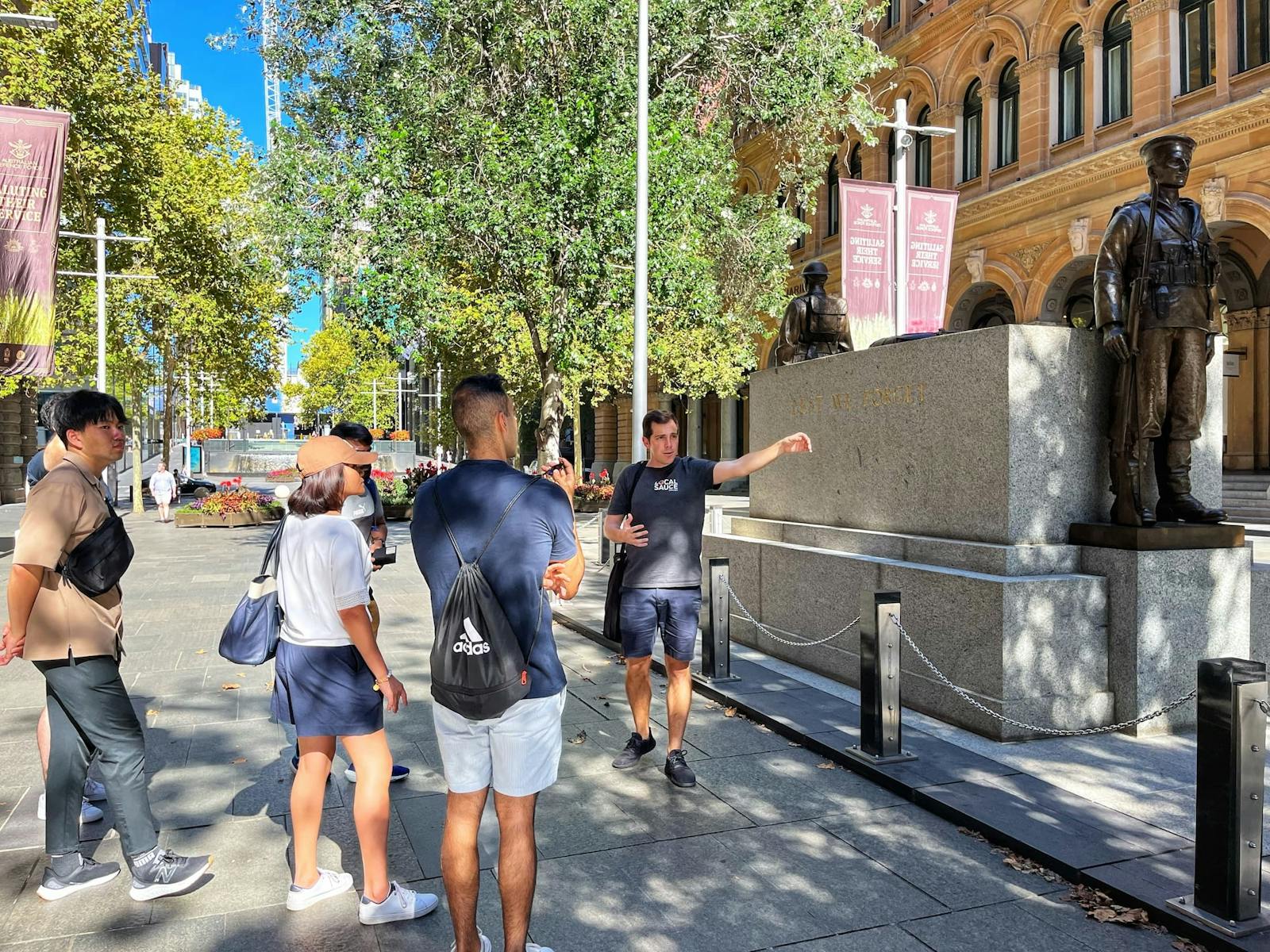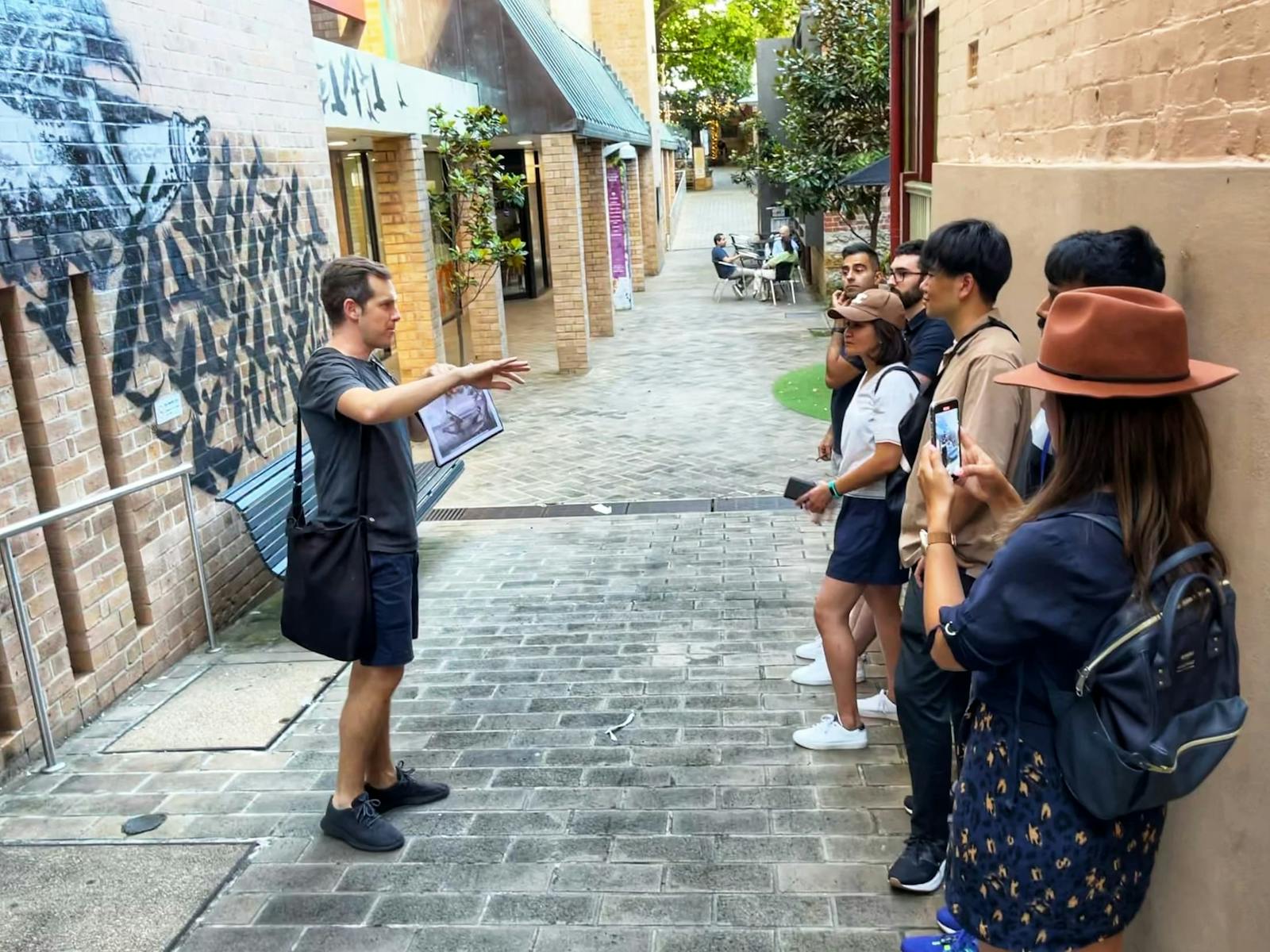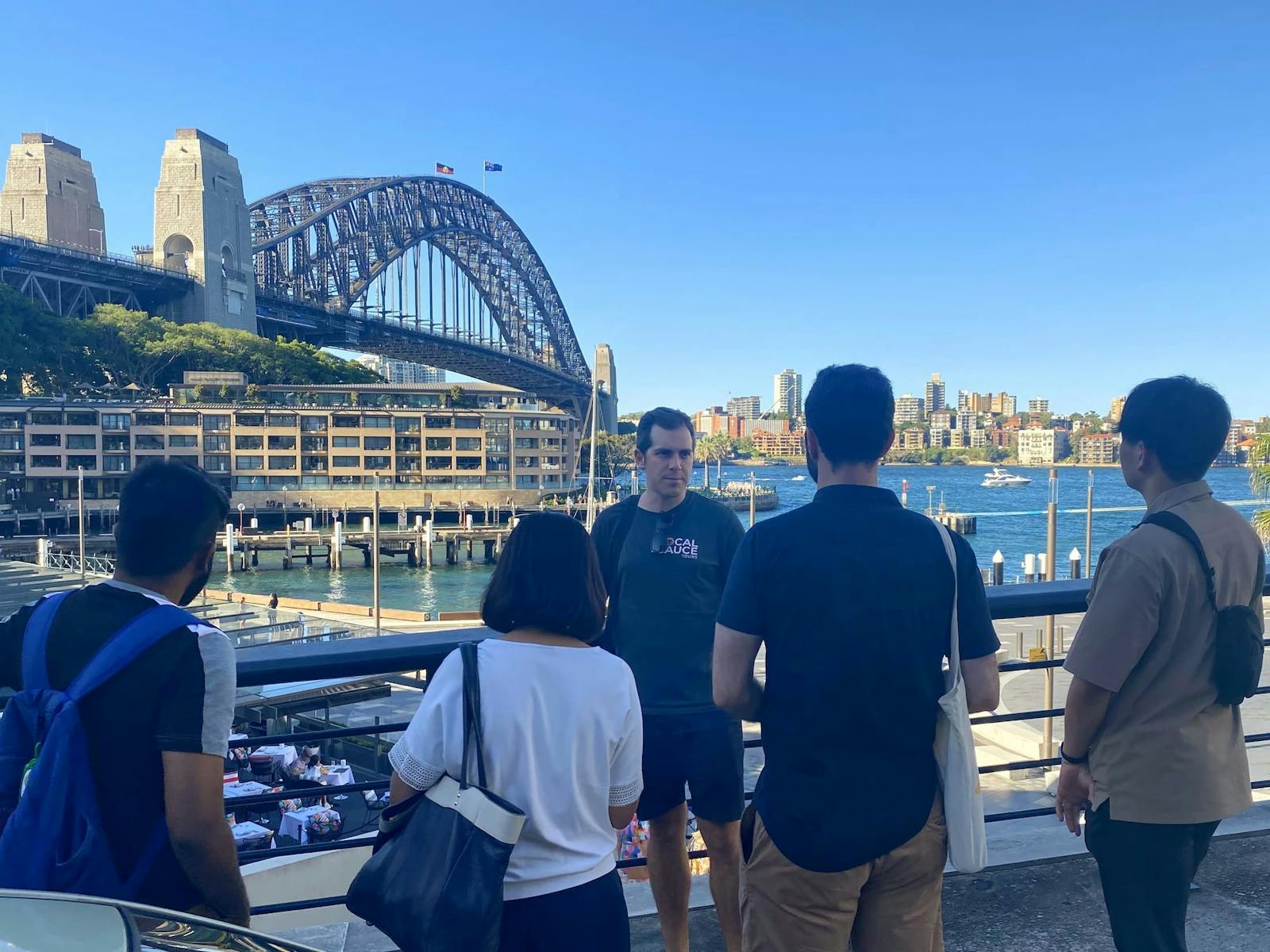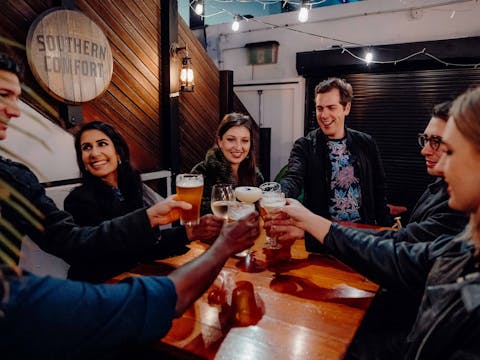Ultimate Sydney Walking Tour
Overview
Discover the story of Sydney on this expert-led small-group walking tour, while hitting all of the city’s main attractions.
Perfect for those who have just arrived, as well as locals and those who want to go deeper in learning about Australian history, culture, society and First Nations people.
Starting from Customs House, you’ll hear about Sydney’s colonisation by the British – and how their arrival impacted the original inhabitants, the Cadigal people of the Eora nation.
Your guide will provide you with a range of perspectives on Sydney’s development, introducing Aboriginal people, British governors, convicts & entrepreneurs, and other multicultural migrants, as you weave your way through the city centre.
Your tour ends with a walk through part of The Rocks, finishing at a popular brewery with harbour views of both the Bridge and the Opera House.
With a maximum of 12 guests, you’ll be able to walk the streets in a small group so you’re not fighting to see, hear your guide or stay on the footpath. You’ll also receive heaps of recommendations to make the most of your time in Sydney: food, nightlife, art and much more – stuff you won’t find in any guidebook!








